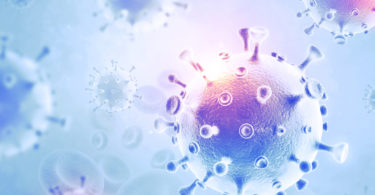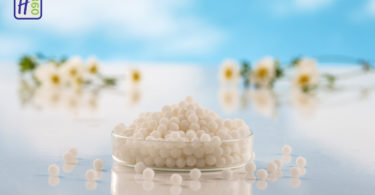Human Mind is very sensitive and calculative when it comes to its own well-being. Even in today’s internet savvy world, the myths and doubts regarding a lot of disease conditions are prevalent and people have many misconceptions regarding these diseases.
One of such misunderstood disease is Psoriasis.
So, let’s decipher these misconceptions and try to address to the facts regarding this disease considered to be a bane among the human generation. We shall be using the term “MISCONCEPTION” rather than “MYTH” as we aim to give a logical and scientific factual detail rather than any historical evidence.
MISCONCEPTION NO.1- IT IS CAUSED BY A VIRUS, BACTERIA OR FUNGUS
FACT – Though the lesions of Psoriasis mimic infectious skin conditions, there is no role of any pathogen in the onset and spread of Psoriasis. At times a superadded infection leads to the formation of pustules on the existing lesions and may require immediate hospitalization also.
MISCONCEPTION NO.2- PSORIASIS IS HEREDITARY
FACT – The causative factors of any autoimmune condition like Psoriasis does include a hereditary factor but it’s not the sole cause of the disease to occur in an individual. Even if the family member(s) is or were affected with the disease , it does not necessarily mean that the coming generations will be surely affected.
MISCONCEPTION NO.3- FOOD AFFECTS THE DISEASE
FACT – There is no direct relation between Psoriasis and any food. There is no evidence that the disease is caused or spreads due to some particular food product. Though some foods like eggplant, tomatoes, peppers are seen to cause a pain reaction but in no ways are directly involved in every case. Food allergies though immunity related also do not have any direct co-relation to Psoriasis. A person may have psoriasis but also may be allergic to some food item for which the body might react differently.
MISCONCEPTION NO.4- CITRUS FRUITS AGGRAVATE PSORIASIS….AVOID THEM
FACT – Citrus fruits containing Vit.C have antioxidants and are found to show improvement in cases of psoriasis.
MISCONCEPTION NO. 5- FLAKES ARE INFECTIOUS
FACT – The scaly skin flakes which come out in psoriasis are immature and dead skin cells of the individual. They do not contain any infective organism or growth and are completely non-infectious. It is recommended that the flakes be removed gently with oiling and when bathing and should not be rubbed and removed forcibly. The thickness and quantity of flakes is a measure of improvement and is an important protocol in the prognosis of the case.
MISCONCEPTION NO.6- ITCHING IN PSORIASIS
FACT – The inflammation of the skin with loss of skin cells leads to loss of moisture from the skin and hence causes itching due to dryness of the skin. Itching , though a common symptom of Psoriasis is a result of the dryness and not of any infection as considered.
MISCONCEPTION NO.7- IT DOES NOT AFFECT INTERNAL ORGANS
FACT – Psoriasis is just not a condition limited to the skin but also affects joints, muscles , nails etc. It leads to arthritic changes in the joints and leads to pain and swelling in joints. The nails also get affected and give rise to nail psoriasis which mimics fungal infection of nails(onychomycosis).
MISCONCEPTION NO.8- STRESS DOES NOT AFFECT PSORIASIS
FACT – One’s mental health is a major factor which contributes to the onset of the disease. Though people suffering from psoriasis do have tendency to get into depression due to the disease , the vice versa is also true. The homeopathic system of medicine believes in the totality of symptoms of both mental and physical plane and cause based medicines are found to help control the disease condition in the best way possible. It is advisable to keep your stress levels low and follow yoga, meditation, exercises to keep oneself fit mentally so as to avoid unnecessary exacerbations in Psoriasis.
MISCONCEPTION NO.9- IT IS A SOCIAL STIGMA
FACT – Due to the aesthetic appearance the society tends to discriminate and ignore the sufferings of the patient. The myth of being infectious has taken a toll on the patients and has pushed many patients into depression. Here, the family support and motivation and a proper care , is required to keep the patient motivated to continue the treatment and help his/her physician to get cure.
MISCONCEPTION NO.10- DOCTOR SHOPPING
FACT – Psoriasis is a chronic autoimmune condition and like any other condition requires a long term continuous treatment to control the relapses and put the patient in a state of remission. Though patients tend to find quick relief, the fact is that no treatment offers immediate and sudden relief due to the nature of the disease. So, doctor shopping will not lead to any results , but would rather complicate due to the side effects of the medicines and complications of the disease. In any case , the minimum time required for the remission state to prolong is 3-5years.
To cure the man in disease as is the suo-motto of Homeopathy, it is very necessary to abolish the wrong notions regarding the disease. The ultimate aim of the physician to bring cure cannot be achieved without a proper guidance to the management of the disease itself.
Here are some Self-help tips which prove efficacious in treating Psoriasis…. signing off with this note:
Moisturize, Moisturize, Moisturize – This is one of the simplest and most effective things you can do for your skin when you have psoriasis. Keeping skin moist helps reduce dryness, itching, redness, soreness, and scaling. Moisture can also help your skin heal. Whichever moisturizer you use, pat it on gently after bathing, and reapply during the day as needed, especially if it’s cold or dry out.
DAILY BATHS
• Baths are another easy way to help care for your skin when you have psoriasis. A daily warm bath using a mild soap can help soothe itchy spots and make it easier to remove dry skin.
• Add oil, colloidal oatmeal, Epsom salt, or Dead Sea salt to the water and soak for 15 minutes for even more relief.
• Steer clear of hot water or harsh soaps while you bathe. They may irritate and dry already-stressed skin. After your bath or shower, gently pat your skin dry instead of rubbing. Rubbing your skin not only irritates existing lesions, it can also cause new ones. After you pat your skin dry, smooth on your moisturizer of choice.
• Find your psoriasis particularly itchy or irritating but don’t have time for a bath or shower? Try placing a wet towel or cold compress on the itchy spot.
EXPOSURE TO SUNLIGHT
• A little ultraviolet (UV) light can go a long way in helping to sooth, improve, even heal psoriasis lesions, though why is still a mystery.
• You can use artificial light for UV therapy during the fall and winter months. The sun’s rays are probably the easiest way to expose your skin to UV light’s healing effects in spring and summer. But be careful: Too much sun (or sunburn) raises your risk of skin cancer and may make psoriasis outbreaks worse.
• Try moderate doses of UV exposure two or three times a week. Be sure to use sunscreen on the parts of your body that don’t have psoriasis outbreaks. Talk to your dermatologist or doctor before adding UV therapy to your psoriasis skin care regimen, and then schedule regular skin checkups to be sure you’re staying safe.
• Studies show that stress can inflame psoriasis and increase itching. Some people even trace their first outbreak of psoriasis to a particularly stressful event.
• Of course, reducing stress is easier to say than do, yet lowering stress may not only help reduce symptoms, it can give you a real sense of control, too.
• To reduce the stress in your life, develop a personal support system, think positively, and take the time to identify what’s important to you. Then practice stress management techniques like exercise, yoga, meditation, guided imagery, deep breathing, or biofeedback.
• Eating right, staying hydrated, and getting plenty of exercise can also help keep stress at bay — and help you fight off the infections that may trigger flares.
AVOID USING HARSH AND CHEMICAL BASED COSMETICS
• You already know that skin with psoriasis is super sensitive. Good psoriasis skin care means avoiding harsh products that can irritate it even more, such as lotions containing alcohol, deodorant soaps, and even some laundry soaps.
Scratchy, rough clothes can also aggravate your skin, so try switching to softer, less irritating cotton-based clothing.
QUIT SMOKING AND DRINKING
• Smoking can trigger psoriasis flares, so quitting may improve your psoriasis, though it doesn’t help everyone. Talk to your dermatologist if you’re considering using a nicotine patch to help you quit — skin patches can aggravate psoriasis for some.
• Heavy drinking can also trigger psoriasis and make treatment less effective. Drinking can also lead to dangerous side effects when combined with certain psoriasis medications.
AVOID SCRATCHING AND PICKING ON SKIN
• There’s no doubt about it — itchy skin begs to be scratched. Yet scratching can tear open the skin, making way for infection-causing bacteria.
• To make the situation worse, scratching may cause lesions to appear where they weren’t before. Picking your skin creates the same hot bed for infection.





